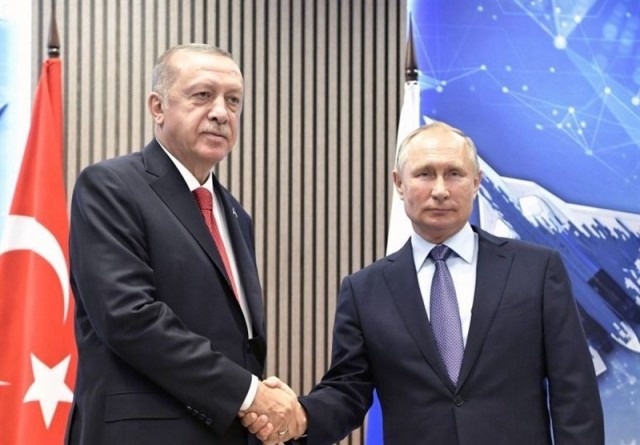In an interview with the website of the Strategic Council on Foreign Relations, Asghar Zarei said according to the purport and context of the agreement the Syrian government has benefitted most. The Syrian government, the Resistance Front and the Russians somehow managed to impose their terms on Turkey and pro-Ankara terrorists.
Referring to the repeated violations of the truce by the terrorist forces, he added: Turkey was trying to use the terrorist groups in Saraqib and the presence of their Turkish supporters as a bargaining chip in the negotiations, but fortunately the liberation of the city by the Resistance forces stripped them of the concession. This put Mr Erdogan in a passive and defensive position and Mr Putin disarmed them.
American Opposition, Russian Upper Hand
The expert on West Asian affairs referring to US opposition to a UN Security Council statement in support of the recent ceasefire agreement between Turkey and Russia said it was out of fears that Russian may hold the upper hand in the talks because the agreement reached on Idlib was in the interest of the government of Bashar Assad. The agreement has given a free hand to the Resistance and pro-Syrian forces. Moreover, any new move by the Turkish-backed terrorist groups would face severe backlash by the Resistance and Syrian and Russian forces.
Zarei said that the strength of the Syrian government is the strength of the Resistance and the strength of what the Americans claim to be Iranian-backed forces in the region and the US-led groups are on the sidelines. The Americans are seeking to reinforce the Kurdish Democratic Front in Hasakah and Kurdish populated regions and exploit it as a deterrent against the Resistance forces.
The inflow of Asylum Seekers to Blackmail Europe
He added that the Turkish government’s actions in the region were ultimately considered a weak point for Ankara and the West-oriented forces. Europeans say by letting inflow of asylum seekers into its borders (including Greece), Turkey is seeking the support of the US and NATO states but Mr Erdogan’s scheme failed following the stance taken by the Europeans.
Zarei said the upper handheld by the Resistance has been the bargaining chip in recent weeks in Idlib and the Aleppo general area that boosted the position of the legal government in Damascus. As a result, the Syrians are trying to liberate the rest of the region from a position of strength.
Turkey’s Distrusts America
The West Asian affairs expert commenting on US view of the new Russian-Turkish agreement on the situation in Idlib and the ceasefire deal, said: “Given the field conditions in Syria, the US and the White House are not willing to risk more in these areas.” The Turkish government has also concluded that it cannot have sufficient and reliable support from the US administration. That is why the Erdogan government has been trying to draw the support of the White House and Mr Trump through lobbying and extensive consultations but has not been successful to date.
“The Pentagon and US defence forces are trying to avoid being too intrusive by pursuing a cautious policy and trying to keep their troops out of the conflict,” Zarei said. US forces are trying to boost their presence in the north and northeast Syria, and in the Kurdish and Syrian oil-rich regions to pursue their exploitation of oil exports; therefore they have concluded that their entry can openly alter these equations to some extent.”
He said the presence of Russian in the region and their fleets in the Mediterranean and the Tartus coasts, realizing this US goal, was also a warning and a message that Turkey should not try to step up its efforts with the support of NATO and US forces.










0 Comments